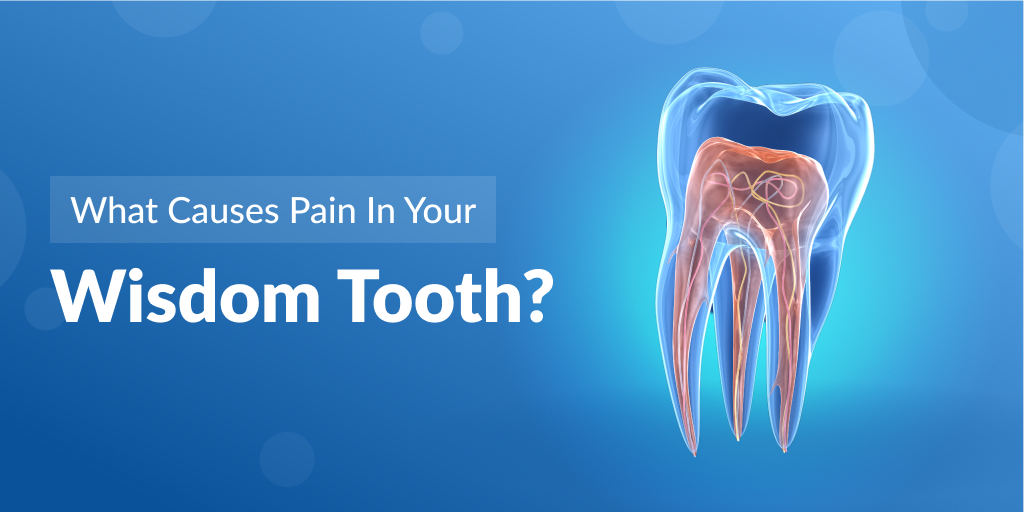Wisdom teeth, also known as third molars, are the last set of molars to emerge in the mouth. For many individuals, these teeth can cause discomfort and pain as they erupt, leading to various symptoms such as swelling, jaw stiffness, and irritation. Managing wisdom teeth pain involves understanding the causes of discomfort and implementing effective strategies to alleviate symptoms. This article explores the factors contributing to wisdom teeth pain, common symptoms, home remedies, and when to seek professional dental care for relief.
Causes of Wisdom Teeth Pain
Several factors contribute to wisdom teeth pain:
Eruption Pressure: As wisdom teeth push through the gums and jawbone, they can cause pressure and discomfort.
Impaction: When there is not enough space in the jaw for the wisdom teeth to fully erupt, they may become impacted, leading to pain and potential complications.
Inflammation: The gum tissue surrounding erupting or impacted wisdom teeth can become inflamed, causing pain and swelling.
Infection: Bacteria can accumulate around partially erupted wisdom teeth or in the gum tissue, leading to infection known as pericoronitis.
see also: How Often Do I Change My Gauze After Wisdom Teeth Extraction?
Common Symptoms of Wisdom Teeth Pain
Symptoms associated with wisdom teeth pain may include:
Throbbing or Aching Pain: Persistent or intermittent pain around the back of the jaw.
Swelling: Inflammation and swelling of the gums in the area where the wisdom teeth are erupting.
Jaw Stiffness: Difficulty opening the mouth fully due to discomfort or swelling.
Bad Breath: Foul odor caused by bacteria accumulating around the partially erupted wisdom teeth.
Difficulty Chewing: Discomfort or pain when chewing or biting down, especially in the area of the wisdom teeth.
Home Remedies for Wisdom Teeth Pain Relief
Over-the-Counter Pain Medications
Non-prescription pain relievers such as ibuprofen (Advil, Motrin) or acetaminophen (Tylenol) can help alleviate wisdom teeth pain and reduce inflammation. Follow the dosage instructions on the packaging or as recommended by your healthcare provider.
Saltwater Rinse
Rinsing your mouth with warm saltwater can help cleanse the area around the wisdom teeth, reduce inflammation, and promote healing. Mix a teaspoon of salt in a glass of warm water and swish it around your mouth for about 30 seconds before spitting it out.
Cold Compress
Applying a cold compress or ice pack to the outside of the cheek can help numb the area, reduce swelling, and alleviate pain. Wrap the ice pack in a cloth and apply it to the affected side of the face for 15-20 minutes at a time, several times a day as needed.
Clove Oil
Clove oil has natural analgesic and anti-inflammatory properties that can provide temporary relief from wisdom teeth pain.
Apply a small amount of clove oil to a cotton ball and gently dab it onto the affected gum area. Avoid direct contact with the tongue or other sensitive areas of the mouth.
Soft Foods and Avoiding Irritants
Eat soft foods that are easy to chew and won’t aggravate the sensitive gums around the wisdom teeth. Avoid crunchy, sticky, or spicy foods that can irritate the gums and increase discomfort. Opt for soups, smoothies, yogurt, and mashed potatoes until the pain subsides.
Proper Oral Hygiene
Maintaining good oral hygiene is essential for managing wisdom teeth pain and preventing infection. Brush your teeth gently with a soft-bristled toothbrush and use a gentle, alcohol-free mouthwash to rinse your mouth. Be cautious around the wisdom teeth area to avoid further irritation.
When to Seek Professional Dental Care
Signs of Complications
While home remedies can provide temporary relief from wisdom teeth pain, certain signs indicate the need for professional dental care:
Persistent Pain: Pain that does not improve or worsens over time despite home treatments.
Swelling: Severe swelling of the gums or face, which may indicate infection or abscess.
Fever: Elevated body temperature, which can be a sign of infection spreading.
Difficulty Swallowing or Breathing: These symptoms may indicate a severe infection or abscess requiring immediate medical attention.
Dental Evaluation
If you experience persistent or worsening wisdom teeth pain, schedule an appointment with your dentist or oral surgeon for a thorough evaluation. They will examine your wisdom teeth, take X-rays if necessary, and recommend appropriate treatment options based on your symptoms and oral health.
Treatment Options
Depending on the severity of your wisdom teeth pain and the underlying cause, your dentist or oral surgeon may recommend:
Extraction: Removal of the wisdom teeth to alleviate pain, prevent complications, and improve oral health.
Antibiotics: Prescribing antibiotics to treat bacterial infection or prevent infection before wisdom teeth extraction.
Surgical Intervention: Surgical procedures such as tooth exposure or gum tissue removal for impacted wisdom teeth.
Post-Extraction Care
If wisdom teeth extraction is necessary, your dentist or oral surgeon will provide instructions for post-operative care to promote healing and reduce discomfort. This may include:
Pain Management: Prescribing pain medications or recommending over-the-counter pain relievers to manage post-extraction discomfort.
Ice Packs: Applying ice packs to the outside of the face to reduce swelling and inflammation.
Soft Diet: Eating soft foods and avoiding hard, crunchy, or spicy foods that can irritate the extraction site.
Follow-Up Visits
Attend follow-up visits as scheduled with your dentist or oral surgeon to monitor healing progress and ensure proper recovery after wisdom teeth extraction. They will remove any sutures, check for signs of infection, and provide further guidance on oral hygiene and dietary restrictions.
Conclusion
Managing wisdom teeth pain involves understanding the causes of discomfort, recognizing common symptoms, and implementing effective home remedies for relief. While home treatments can alleviate mild to moderate pain temporarily, it’s essential to seek professional dental care if you experience persistent pain, swelling, or other signs of complications.
Your dentist or oral surgeon can evaluate your wisdom teeth, recommend appropriate treatment options, and provide personalized care to improve your oral health and alleviate discomfort effectively. Taking proactive steps towards managing wisdom teeth pain ensures optimal oral hygiene and promotes overall well-being.

